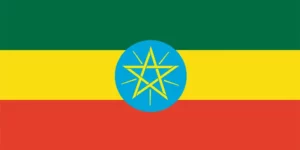(Addis Ababa: 20 June 2025) – The Government of Ethiopia through Refugees and Returnees Service – RRS, in collaboration with UNHCR, the UN Refugee Agency and partners commemorated World Refugee Day 2025, a day dedicated to honoring the strength, courage and contribution of refugees.
The events featured film screening, cultural dances, musical performances, essay competition, storytelling and circus show presented by talented youth from both refugee and host communities.
In addition, an exhibition of artwork and handmade products by refugees offered a glimpse into their creativity and entrepreneurial spirit, providing an opportunity to support their work through purchases.
“Ethiopia has maintained a proud tradition of hosting refugees for very long now. That’s why we are committed to solidarity with refugees by including them into our national systems,” said Ms. Teyiba Hassen, Director General of RRS.
These events are a testament to Ethiopia’s leadership in aligning national efforts with the Global Compact on Refugees and advancing its commitments made at the Global Refugee Forum, proving how refugees are able to work, study and build a new life in their country of asylum.
“The Government of Ethiopia has demonstrated its solidarity with refugees through its comprehensive inclusion approach going beyond basic services toward providing vital biometric identity documents,” noted Mr. Andrew Mbogori, UNHCR Representative in Ethiopia.
To respond to the growing needs of over 1.1 million refugees and asylum seekers in Ethiopia, the Government has adopted a bold, forward-looking legal framework and strategy that integrates refugees into national systems.
Inclusion is not a new phenomenon in Ethiopia as refugees’ right to work, start businesses and access financial services emanates from the provisions of the progressive Refugee Proclamation 1110/2019.
Hence, they are provided with a digital identity through a Fayda ID and equitable access to education, healthcare, water, sanitation and hygiene (WaSH), telecoms, employment and other opportunities.
Ethiopia has made substantial progress in the inclusion of refugee students into its national education system, guided by strong legal and policy frameworks.
A key milestone was the adoption of the 2019 Refugee Proclamation, granting refugees the right to access public education alongside Ethiopian nationals.
Ethiopia has also undertaken important legal and policy reforms to support the inclusion of refugees in national development initiatives, particularly in skills training and employment opportunities.
In addition to the 2019 Refugee Proclamation, which grants them the right to work, start businesses and access financial services, the Labour Proclamation 1156/2019 has extended labour protection to all wage-employed workers, including refugees.
The “Solutions from the Start” model already practiced in the Alem-Wach, Ura and Mirqaan refugee sites/settlements is an existing testament to inclusion, marking a significant shift from traditional humanitarian, often parallel responses to a whole-of-government and whole-of-society approach rooted in protection, dignity and sustainable development.
As the inclusion of refugees is well underway thanks to robust legal and policy frameworks, sustainable investment, system and capacity building and coordinated partnerships are crucial to bridge service gaps and ensure equitable care for refugees and host communities alike.


















